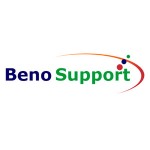Business Process Outsourcing (BPO):
BPO involves delegating specific business functions to external service providers renowned for their expertise, technology, and scalability. These providers excel in tasks like data entry, customer support, finance & accounting service, data operations & insight & much more.
In-House Operations:
In-house operations center around internal task handling, utilizing an organization's own resources, employees, and infrastructure. This approach offers a higher degree of control and direct oversight over processes.
Expertise and Specialization:
BPO: BPO companies boast specialized knowledge and proficiency in their domains, navigating complexities, mitigating risks, and ensuring accuracy.
In-House: Developing in-house expertise requires substantial investments, and in-house staff may not attain the same level of proficiency as dedicated outsourcing companies.
Cost Considerations:
BPO: Offers cost advantages from economies of scale, competitive rates, and potential savings by outsourcing non-core processes.
In-House: Concealed expenses in recruiting, training, and infrastructure maintenance may result in higher-than-expected costs.
Scalability:
BPO: Inherently scalable, BPO providers can swiftly adjust their workforce and resources to match changing workloads.
In-House: Scaling up or down in-house operations is typically time-consuming and rigid.
Focus on Core Competencies:
BPO: Outsourcing non-core tasks allows businesses to redirect internal resources towards core competencies, fostering growth and competitive advantage.
In-House: Handling both core and non-core tasks internally may dilute resources and limit the organization's ability to innovate.
Control and Oversight:
BPO: Requires relinquishing a certain level of control, necessitating effective communication and well-defined agreements.
In-House: Grants direct control and immediate oversight, suitable for situations requiring real-time decisions.
Risk Management and Compliance:
BPO: Reputable providers prioritize data security and compliance, but organizations must conduct due diligence in selecting a provider.
In-House: Managing risk and compliance in-house requires continuous investment in security measures, technology, and staff training.
Making the Right Choice
Navigating the choice between BPO and in-house operations requires a comprehensive evaluation based on the organization's circumstances, objectives, and limitations. Consider factors like the complexity of processes, cost-effectiveness, scalability requirements, core competencies, control preferences, and risk tolerance. By thoroughly examining these factors, organizations can make informed decisions aligned with their strategic goals.
Beno Support: Your Partner in Decision-Making
In the decision-making process between BPO and in-house operations, Beno Support serves as a strategic partner. With extensive experience in the outsourcing landscape, Beno Support offers custom-tailored solutions aligned with an organization's unique needs, objectives, and values.
Business Process Outsourcing or In-House?
Ultimately, the decision between BPO and in-house operations depends on what best suits the organization. Factors like expertise, cost savings, scalability, core competencies, control, and risk should be considered. Regardless of the chosen path, it's crucial to align the decision with the long-term game plan. With Beno Support's expertise, organizations can approach this choice with clarity and confidence, ensuring it aligns with their future business direction.
For more information, please reach out to Beno Support
Visit : https://www.benosupport.com/
Mail: [email protected]






Comments